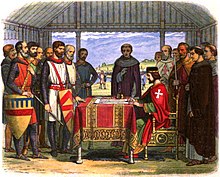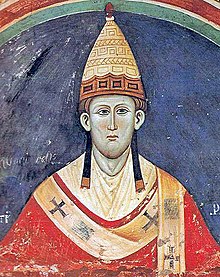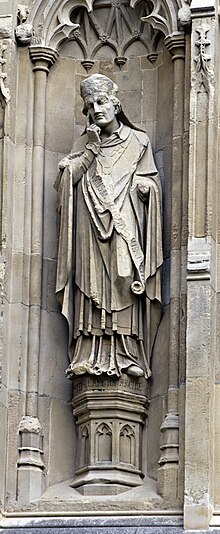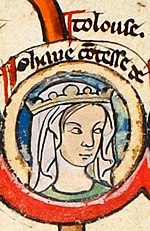In March 1219, Henry’s regent, the redoubtable and resolute peerless knight, Sir William Marshall breathed his last. The eleven year old king must have felt the loss acutely.
‘Loyal to the end to the Plantagenet family most royal!
Until he left the confines of this mortal coil!
Sir William Marshall, in King Henry’s service, did relentlessly toil!’
The effigy of Sir William Marshall on his tomb in Temple Church London.

A real bond must have developed between the baron, a man in his seventies, and the child king . Marshall once said that he would carry the boy on his shoulders if they were deserted by allies and had to beg for their bread. No one who knew the man doubted these words. With his father dead and his mother, Isabella’s, decision to take up permanent residence in France, Marshall was the only parent Henry had had in his first two and a half years of kingship.
‘Rest in peace dearest uncle Willie!
Your thoughts and actions were always noble, never silly!
I shall never forget you, riding high on your mighty steed and me trailing behind on my delightful little filly!’
However heavily felt the loss, the business of the governance of the kingdom had to continue uninterrupted. Unfortunately Henry’s entire reign experienced continuous disruption. Of course Henry’s kingship required adult supervision, and the administration was put into the hands of three men: Peter des Roches, Hubert de Burgh and the papal legate, Pandulf Verrachio. These ‘three wise men’ were collectively known as the ‘triumvirate’. As shrewd old Sir William predicted on his death bed, the triumvirate would soon find it difficult to agree on what should be done. One thing that everyone agreed upon was the necessity of a second coronation ceremony. The circumstances of the first coronation at Gloucester were considered profoundly unsatisfactory. The fact that the King of England was crowned with a simple gold circlet because a crown could not be found with which to place on his head, rankled with one and all. This was a national scandal that could not, and indeed must not endure. A swift remedy was required and it was found.
‘The ceremony at Gloucester Cathedral was a coronation at the back door!
Such a demeaning event shamed the entire kingdom to its very core!’
The second coronation of Henry, Westminster Abbey 1220.

On May 17th, 1220, Henry was crowned for a second time, this time the ceremony would take place at Westminster Abbey conducted by the Archbishop of Canterbury. No expense was spared for the lavish banquet which followed, because, of course the whole nation had to be made aware that a most grievous error had now been corrected. How could they treat this prince so badly who was descended from every king since William the Conqueror.
‘You thought that by allowing a humiliating coronation, you could deny me my inheritance, then everything to your fetid, foul ends would follow!
So happiness would be bestowed on you, oh yes you, and unto me only the most unspeakable sorrow!
But you did not realise that there were those who acknowledged that what has passed since 1066 was right and just and will inevitably lead towards a better tomorrow!’
Henry certainly did not hesitate to punish people when he thought it necessary. The young king was acutely aware of his dignity as monarch and expected the utmost respect at all times. When Fawkes de Breaute, a former ally who had hosted Henry for Christmas 1217 displeased him, the king ordered Bedford castle which was in the possession of de Breaute’s loyalists to surrender. However the garrison had the temerity to refuse and Henry took this affront to his regal dignity very personally.
‘You common foot soldiers, you don’t give me, the king, total respect?
Then from my royal person, no mercy can you expect!
You traitors might answer, ah what the heck!
But I swear that I will stretch each and every lousy neck!’
Henry successfully besieged the castle and hanged the captured soldiers.
A rather unsavoury aspect of Henry’s reign was his treatment of the Jewish people. Such tyranny was not new in England or indeed elsewhere in Christendom where many decried the Jewish people as ‘Christ killers.’ The senior clergy were steeped in prejudice against those of the Jewish faith. Compared with some others, particularly the Archbishop of Canterbury, Stephen Langton, Henry was probably more liberal in his attitude towards the Jewish people. Henry’s wife, the strong willed Eleanor of Provence was an enthusiastic anti-Semite.
Eleanor of Provence. Queen consort of England.

Nonetheless, the king, with his perennial problem of funds, taxed the Jewish community, mercilessly. In 1233 a law was passed that stated that only those Jews who could prove their value to the Crown could reside in England. Those deemed as being of little use to royal authority or more accurately the exchequer, were required to leave the country.
‘Crucifixion! Crucifixion!
The scene is set for some nasty racial/religious friction!’
However in 1255, there occurred one ghastly and bizarre incident which did not reflect at all well on King Henry. An eight year old boy, Hugh went missing in Lincoln and his body was later discovered in a well. It was reported that Hugh had last been seen alive, playing with some Jewish boys. Another factor was the presence of a large number of Jewish visitors in the city attending the wedding of two members of very wealthy Jewish families. Between traditional loathing, enduring suspicion and plain rotten jealousy, the scene was set for a very nasty case of anti-Semitic violence.
‘The Jewish revellers ventured to Lincoln to attend a sumptuous wedding feast!
There they encountered conduct that rendered the perpetrators lower than any beast!’
A rumour spread that Hugh had been abducted by the Jewish community and crucified. A Jewish man called Copen confessed to one of Henry’s inner circle, John of Lexington that he and other Jews had crucified Hugh. The confession was almost certainly extracted through torture and Copen was promised clemency in return for his ‘honesty’ in taking responsibility for the murder. However, the king had met with Hugh’s mother and was horrified when the woman, distraught with grief told him that her son had been crucified.
‘Moved by the mother’s tears, Henry promised the lady that he would act!
Unfortunately the horrible rumour of crucifixion had no basis in fact!’
Full of pity for the boy’s mother and furious at such a despicable crime, Henry travelled to Lincoln to investigate the matter himself.
‘Never take decisions in a state of high emotion!
The outcome is almost certainly to cause an almighty commotion!’
And indeed a tremendous commotion did occur. When Henry heard of Copen’s confession, he became incandescent with rage and ordered the immediate execution of the unfortunate Jewish man. Many other Jews were arrested and eventually nineteen of them were hanged. The property of the executed men was forfeit to the crown which would of course help to alleviate Henry’s chronic financial circumstances.
An appalling vista of events? The church decided to proclaim the dead boy, Hugh, a saint and a shrine was built at Lincoln cathedral to commemorate his memory. The cathedral was already an place of pilgrimage, so the new shrine was yet another attraction to prospective pilgrims and this had the pleasing effect of increasing church revenue.
The shrine of St Hugh at Lincoln Cathedral.

‘We now have another shrine to a saint named Hugh!
Here as we kneel in a cathedral pew!
We will pray, and of course leave a money offering to you!’






































